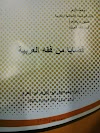In Islamic teachings, the significance of prayer (dua) cannot be overstated. It is a vital form of worship that allows believers to seek help, protection, and healing from Allah. Recently, a question arose regarding the authenticity of a specific prayer known as Rihul Ahmar, which is said to have been taught by the Prophet Muhammad (peace be upon him) to heal his sick grandson. This article explores the origins, validity, and implications of this prayer.
Watch Rihul Ahmar Dua on YouTube, click here
The Story Behind Rihul Ahmar
According to the narration, the Prophet Muhammad's grandson was afflicted by a condition referred to as Rihul Ahmar, which caused bleeding from his nose. In this moment of distress, the Angel Jibril (Gabriel) appeared to the Prophet and taught him the Rihul Ahmar prayer. Upon reciting this prayer, the grandson was miraculously healed. The prayer is as follows:
اللَّهُمَّ إِنِّي أَعُوذُ بِكَ مِنَ الرِّيحِ الْأَحْمَرِ وَالدَّمِ الْأَسْوَدِ وَالدَّاءِ الْأَكْبَرِ
(Allahumma inni a’udzubika minarrihil ahmar, waddamil aswad, wadda`il akbar)
Translation: "O Allah, my Lord, protect me from the red wind, protect me from the black blood (stroke), and from the greatest disease."
The Question of Authenticity
The primary question is whether this hadith (narration) is authentic (sahih). After thorough investigation, no valid source appears to confirm the existence of a disease specifically named Arrihul Ahmar in Islamic teachings. The term Arrihul Ahmar is found in Arabic lexicons, such as Tajul ‘Arusy min Jawahiril Qamus, where Tajul' is associated with certain plants, such as basil (Ocimum basilicum) and lemon balm (Melissa officinalis), which were believed to have medicinal properties.
Additionally, the concept of Arrihul Ahmar is discussed in Ad-Dairabi's Fathul Malik al-Majid, where it is described as a creature that brings calamities or diseases as a form of divine punishment. However, this narrative does not directly relate to the prayer taught by the Prophet.
The Nature of Prayer in Islam
Islam encourages prayer in all forms, whether derived from the Prophet (known as dua al-ma’tsur) or not. Allah commands believers to call upon Him inal-ma'tsurfir (40:60), stating:
"And your Lord says, 'Call upon Me; I will respond to you.'"
This verse emphasizes the importance of supplication and the belief that Allah is always ready to listen to His servants.
The Prophet's Teachings on Wind
While the specific prayer of Rihul AProphet'sot is found in the authentic hadith collections, the Prophet Muhammad taught his followers to pray regarding the wind in general. In a narration reported by Imam Tirmidhi, he advised against cursing the wind and instead encouraged believers to seek goodness from it:
"Do not curse the wind. If you see something you dislike, say: '" Allah, we ask You for the goodness of this wind and the goodness of what is in it.'"
This teaching reflects the broader Islamic principle of seeking refuge in Allah from all forms of harm.
In conclusion, while the Rihul Ahmar prayer is a topic of interest, its authenticity remains questionable due to the lack of credible sources linking it directly to the Prophet Muhammad. However, the act of praying itself is highly encouraged in Islam, and individuals are free to make supplications to Allah for protection and healing. It is essential to approach such prayers with the understanding that they should not be attributed to the Prophet without proper evidence.
As we navigate our spiritual journeys, remember the importance of sincere prayer and the belief that Allah is always listening. May we seek His guidance and protection in all aspects of our lives. Wallahu a'lam.









